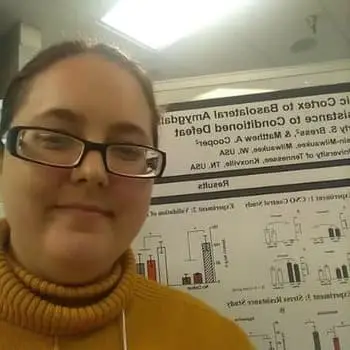Mindfulness-based therapy methods have become popular within therapy settings in recent years. Find out more about mindfulness and how it might help you with addiction.
Mindfulness-based therapy methods have become commonplace within therapy settings in recent years. Find out more about mindfulness-based therapy and how it might help you or a loved one who is dealing with a substance use disorder.
What Is Mindfulness-Based Therapy?
The concept of mindfulness has its roots in Eastern contemplative traditions and is most often associated with the formal practice of mindfulness meditation. Mindfulness is a mental state achieved by maintaining your awareness on the present moment, while calmly acknowledging and accepting your feelings, thoughts and bodily sensations.
So what exactly is mindfulness-based therapy?
Treatment Can Be Life Changing. Reach out today.

Mindfulness-based therapy is any therapy that utilizes mindfulness techniques. Different forms of cognitive-behavioral therapy (Mindfulness-Based Cognitive Therapy, Acceptance and Commitment Therapy, and Dialectic Behavior Therapy) are most commonly associated with encouraging elements of mindfulness as a part of their technique or curriculum.
Mindfulness-based therapy methods have been shown to be effective at reducing the symptoms of depression, anxiety (including post-traumatic stress disorder) and insomnia.
Further, mindfulness-based therapy also reduces substance abuse relapse.
How Mindfulness Therapy and Addiction Treatment Work Together
Therapists have been increasingly utilizing mindfulness therapy as a part of the addiction treatment process. Mindfulness skills are particularly useful as a technique for coping with urges and cravings.
In this way, mindfulness therapy and addiction treatment work together to prevent relapse.
Scholars have observed that mindfulness involves the acceptance of the present moment, whereas addiction is the repeated desire to avoid the present moment. Thus, by training the brain to accept the present moment, this can reduce urges to engage in substance abuse.
Benefits of Mindfulness Therapy
There are many benefits of mindfulness therapy, including:
- Contributing to general well-being and happiness
- Increasing awareness and attention
- Reducing stress
- Decreasing blood pressure
- Aiding in addiction recovery
How The Recovery Village Utilizes Mindfulness in Their Programs
The Recovery Village Palm Beach utilizes mindfulness by incorporating it into therapy programs. Here are a few of the programs that incorporate mindfulness techniques that you may encounter at The Recovery Village:
- Cognitive Behavioral Therapy (CBT): CBT has been extensively studied in the fields of psychology and psychiatry, which has led to it becoming one of the more popular forms of behavioral therapy. CBT provides various ways for individuals with substance use disorders to understand and recover from addiction.
- Dialectical Behavioral Therapy (DBT): DBT helps individuals who struggle with addiction to pursue better lives. DBT encourages individuals to accept themselves, as well as make changes to live a healthier, meaningful life that is independent of their past actions.
- Acceptance and Commitment Therapy (ACT): ACT trains people to accept unproductive thoughts by acknowledging that thoughts cannot be controlled. It also involves committing to a life aligned with a person’s values.
Mindfulness-Based Therapy Exercises & Skills
You can start practicing being mindful today. There are many simple mindfulness-based cognitive therapy exercises and skills that you can work on right at home. Here are the basic steps to practicing mindfulness-based meditation:
- Set aside time: You don’t need a fancy cushion to use your mindfulness skills, but you do need to learn to set aside some time and space in order to practice
- Observe the present moment: The aim of mindfulness to pay attention to the present moment, without judgment
- Let your judgments pass by: When we notice judgments enter our minds during meditation, make a mental note of them, and let them pass
- Return to observing the present moment: Our minds can get carried away with random thoughts. Mindfulness is the practice of returning to the present moment, again and again if necessary
- Be kind to your wandering mind: Don’t judge yourself for your thoughts; just practice recognizing when your mind has wandered, and bring it back to the present moment
Is Mindfulness-Based Therapy Right for You?
The great thing about mindfulness-based therapy is that it really is for anyone of any religion, race, gender, age and so on. Mindfulness-based therapy is beneficial whether you struggle with anxiety, depression or addiction.
Mindfulness addiction therapy has been shown to be a potentially powerful tool for avoiding relapse and beating urges and cravings. Talk to your therapist today if you think you could benefit from mindfulness-based therapy. You can also contact us us at The Recovery Village Palm Beach to discuss mindfulness-based therapy options. And don’t forget, you can begin practicing the basic skills of mindfulness right at home, at the park or even while taking a walk.











